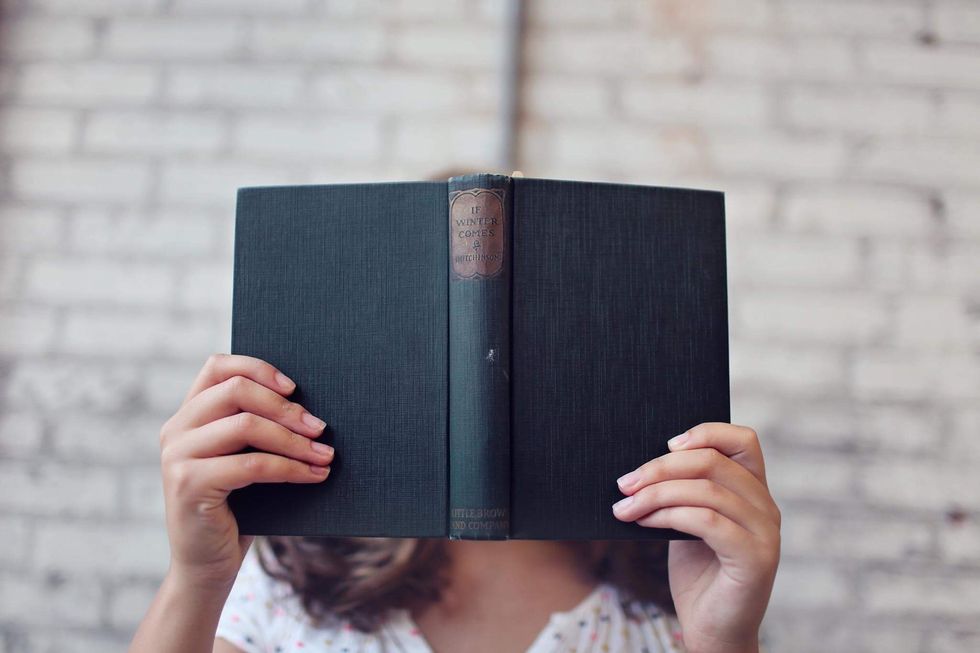There once was a time where I dreaded reading. I had this phase that while reading certain books, I grew bored of them, didn’t understand their plot, forgot names of the important characters, along with many other problems. If you’re a college student like me, you’re probably taking a literature course this semester. You may be fearing this certain course. You're going to read books you’ve never heard of, write essays and papers surrounding themes and symbols—all that good stuff you would expect from a literature course. Some of you may be nervous about reading the course texts, but why? Simply put, you may not be an effective reader, and know that all those themes, symbols, and essay instructions will fly right over your head, faster than James Patterson can write a book (he wrote twenty-one books in 2017).
But have no fear! Here are five reading tips that could help you become an effective reader. Don’t be afraid to try all the approaches listed; some tips may help you more than others, and that’s okay! Whether you’re trying to pass with a C, or you’re just looking for new ways to enhance your reading abilities, hopefully these tips will help you out.
1. Don’t cram it all in one day, but read often.
Sure, we all love the feeling where we can sit down and read for hours without stopping, but do we effectively retain and remember that information, say, two weeks later? Imagine you’re in a literature course: does the professor instruct you to read the whole book in a day or two? Absolutely not (and if they do I suggest they make their syllabi more flexible). Take it one day at a time. I suggest reading 30-70 pages a day. This allows you to reflect and dwell on what you’ve just read before moving on to the next part of the book. And if you’re reading for a class, don’t cram it the night before. You’re only going to be bitter about your life and eventually hate the book. Lastly, never stop reading. Reading feeds your creativity; it unlocks new possibilities, realities, and ideas you never thought possible.
2. Take your time.
Reading and sex both have a lot in common: they’re pleasurable, they can be done during the day or at night, and most importantly, neither should be rushed. If you’re reading a textbook, by all means, skim through the pages, because most of the time the textbook gives you too much information anyway. But never, ever skim a novel just to be through with it. Also, don’t use Sparknotes either. It’s like cheating on your book, and you will regret it later.
3. Annotate.
Annotating is perhaps the oldest trick in the book (no pun intended). Annotating with a pencil works, but I suggest using a pen or a highlighter. Pencil marks fade too easily on paper. Also, sticky notes and colorful tabs help as well. Now, highlighting and using sticky tabs are great, but what exactly should you be annotating? Below are some things:
-Circle character names when they first appear in the text. By circling the names, you don’t just skim over their name, you have to actually look at it for a bit longer than usual. Personally, when I do this, I tend to remember the character’s names every time.
-Underline and markup the setting’s details. The author may be telling you something about the characters and their personalities based off the settings they’re in. The details may also give you an idea of the world your characters are in.
-Underline colors, symbols, and whenever the weather is mentioned. Why weather? It's a symbol for change. If it’s sunny in the book and suddenly rains in the next chapter, you can anticipate that it’s about to get dreary for the characters. Sunshine can symbolize happy times, rain means sad times and that every character is soon going to struggle with something, springtime symbolizes change, fall symbolizes change for the worst, etc. You get the idea.
-Underline scandalous dialogue that the character says. By doing so, it’s easier to analyze or prove a point later on. For example, if you’re writing a paper on Lady Audley’s Secret, and you want to make an argument that Robert Audley is rude towards women, then you can easily go back and find the underlined sentence where he flat out says, “I hate women.” Basically, you’re “getting receipts.”
4. Write chapter summaries.
It’s pretty straightforward. Summarize what you’ve just read. If you hate this idea, then try this: get creative with your summaries. For example, after reading the chapter where Mr. Darcy asks for Elizabeth’s hand in marriage, write down something like, “Mr. Darcy liked it, so he put a ring on it.” You can even make a Vine reference in certain chapters, like the one where Gatsby dies: “Mr. Gatsby? Mr. Gatsby? Oh my fu**ing God he fu**ing dead.”. Or when Hamlet discovers his drink is poisoned in Act 5 Scene 2: “Come get y’all juice.” It’s more fun making creative summaries. Also, it will make it much easier when you’re doing a book report, so you’re not skimming through every single page trying to find a certain scene or moment.
5. Google unfamiliar words you come across.
It may sound like a lot of work, but when you come across a large word in a book, it takes mere seconds for you to pull out your iPhone and google the definition. I will often come across a word I’m unfamiliar with, circle it, google it, and then write a small explanation of the word in the book.
So there are 5 tips for reading more effectively. I hope these help you in your future classes and courses. What are some other tips that help?
















